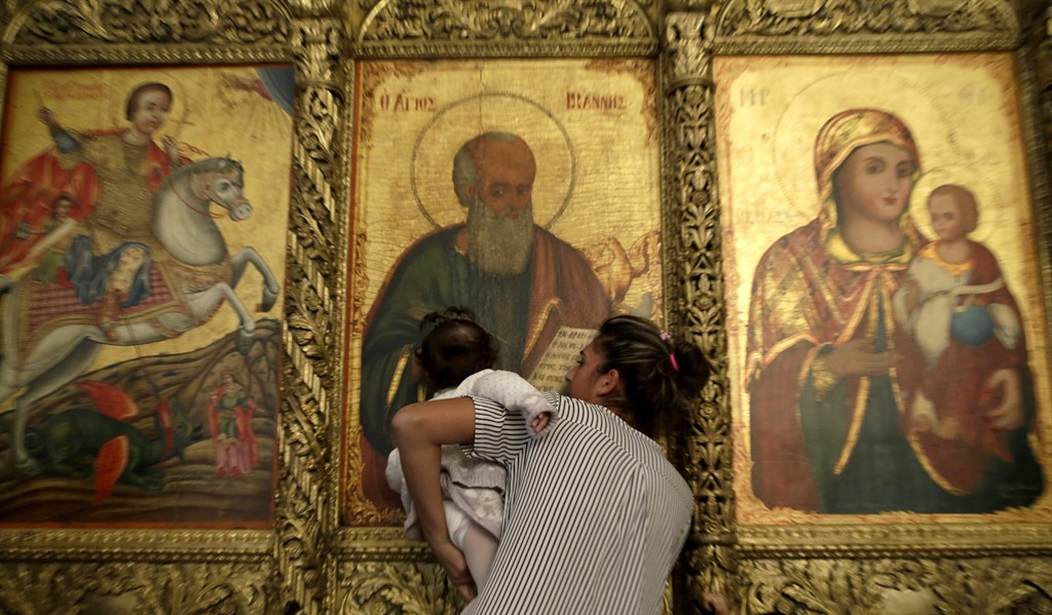As you may recall, toward the end of last year, some wag decided that another problem vexing society was that men spend too much time thinking about the Roman Empire. This, of course, resulted in multiple articles ridiculing the idea. And it probably got men thinking about the Roman Empire. Why someone would try to invent a tempest in a cultural tea cup over such a thing is a mystery to me. The truth is that people, not just men, fail to pay enough attention to the Roman Empire.
I do not mean the Roman Empire offered up to us in movies such as "Gladiator," or depictions of chariot races, lascivious emperors, or legions of soldiers thumping their breastplates and shouting "Integritas!" And I do not mean the photos of ruined aqueducts and courtyards in my Latin textbooks in high school or the empire depicted in documentaries on the History Channel, back when it actually offered its viewers programs about history. This is not to say that those documentaries provided nothing of substance. But for many, their knowledge of the Roman Empire, the split between East and West, and its ultimate fall has unfortunately been limited to a paragraph or two in a world history textbook. Many believe the empire breathed its last when the Goths overran and sacked Rome in 410 or perhaps when the Western empire finally collapsed in 476. What is generally not known is that the Roman Empire, in one form or another, existed until 1453 and the fall of Constantinople.
Robert Spencer's latest offering, "Empire of God: How the Byzantines Saved Civilization," changes that. I ended up with a review copy when I reached out to Spencer, a PJ Media colleague, inquiring how I might get my hands on the book. I am an armchair religious scholar with an interest in history, so it is the kind of book I would have read anyway. And, if you are anything like me, you tend to cast a wary eye at the stacks in your local bookstore.
"Empire of God" is more than just a chronology of the empire. While it picks up where most history lessons leave off in terms of the empire in the East, it also details a myriad of factors that contributed to the flourishing and demise of the empire throughout its history. Of note, the Byzantines considered themselves to be Romans and rightful heirs and keepers of the empire up until the bitter end. The effects of the work the Byzantines did in preserving and refining Roman laws, economics, and education, including the preservation of classical philosophy and literature, can be felt to this very day. Our justice and our educational systems, when they work, are heirs to the Byzantine's efforts.
Modern scholars tend to limit the split between the Eastern and Western churches to a disagreement in doctrine, although they may reference the filioque debate. But the divide was based on far more than that, and the issue did not end with mutual excommunications. Doctrinal differences would play a role throughout the life of the empire, and there would be episodes during which peace overtures would be made by Constantinople to secure the support of the West in times of conflict. The traditions of the Byzantine church live on, not only in Eastern Orthodoxy but to some degree even in denominations that eschew iconography and the Nicene Creed.
Related: DEI by Any Other Name Would Smell as Rotten
The book also highlights the mistakes, hubris, nobility, and successes of the Byzantines and explains the political climates throughout history. When it was approaching its final act, the empire struggled to find ways to deal with the hammer-and-anvil of Islamic jihadis to the east and Christian nation-states in the west, who were bent on claiming the empire for their own. Some emperors were mentally unfit to rule, and others found ways to manipulate the economy for profit and levied harsh taxes on the populace. There were also those who provided the empire with peace and economic stability. Consider the saga of Emperor Romanos IV Diogenes, who set out to take on his Islamic foes with an under-equipped and under-staffed army. His campaigns gave the appearance of defending the empire while accomplishing very little.
If any of that sounds familiar, it should. Many people understand that when Rome first fell to the Goths, it was due at least in part to the Romans outsourcing their military to non-citizens, who ultimately had no interest in becoming Roman. Spencer draws many parallels between the empire and the modern age, and on the book's pages, one can see that history does indeed rhyme, if not repeat itself. Of note, Spencer talks about how Emperor Justinian responded when the bubonic plague arrived in Constantinople in 541:
Unlike today’s far more sophisticated and knowledgeable epidemiologists, Justinian seemed to understand a simple fact that has been largely forgotten, that it is virtually impossible to stop the spread of a bacterial or viral disease for which there is no known cure. It is absolutely impossible to cut human beings off from interacting with one another. Fifteen days will not stop the spread; nor, ultimately, will masks or social distancing or closing offices.
Justinian also had enough humility to know and admit that there was no known cure. He was not rash or imprudent enough to trumpet a new and untested remedy as effective, only to have to begin moving the goalposts so that one dose of this cure wouldn’t be enough, but one would need two, or three, or four, plus boosters. He didn’t have the colossal hubris to require that the Roman people receive this untested remedy or be barred from essential services and even be at risk of losing their jobs, despite growing evidence that it had harmful side effects. The people of Constantinople, and of the Roman Empire in general, would have clamored for a cure and many were willing to try anything. Justinian, however, did not lend the weight of his imperial prestige to any quack remedies that only had one certain effect: the enrichment of those who manufactured them.
"Empire of God" is not light reading. I intend to read it a second time in order to glean everything in its pages that I missed during the first reading. While it is not a casual book, it is an important book. It does more than provide the reader with an in-depth examination of an often-overlooked period of history. It also provides valuable lessons for today that we ignore at our peril.










Join the conversation as a VIP Member